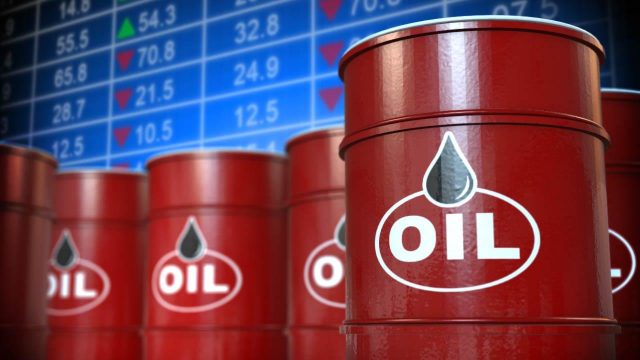…As the Hamas-Israel conflict escalates, it has repercussions for the broader region, home to some of the world’s largest oil producers.
…Brent Crude Oil Futures jumped from around $84 immediately prior to Hamas’ attack on Israel to a peak of more than $93 in its aftermath as the situation deteriorated.
…Risk premium: geopolitical uncertainties in the Middle East can lead to the addition of a “risk premium” in oil prices
By Rebecca Ellis
SAT, NOV 04 2023-theGBJournal| Geopolitical events in the Middle East have historically had a significant impact on global oil prices. Oil which is often referred to as Black Gold is on the rise. In this article, we aim to consider what this means for investors.
How do geopolitical events affect oil prices?
As the Hamas-Israel conflict escalates, it has repercussions for the broader region, home to some of the world’s largest oil producers. The region is strategically located along key oil transportation routes. Brent Crude Oil Futures jumped from around $84 immediately prior to Hamas’ attack on Israel to a peak of more than $93 in its aftermath as the situation deteriorated. In this article,
The main impacts are the following:
Supply disruptions: conflict or political instability in major oil-producing countries like Saudi Arabia, Iran, Iraq, or Venezuela can disrupt oil production and exports. Such disruptions can lead to a decrease in the global oil supply, pushing prices higher.
Strait of Hormuz: the Strait is a critical chokepoint through which a significant portion of the world’s oil passes. Any tensions or conflicts in this area can lead to concerns about oil shipments, potentially causing price spikes.
Risk premium: geopolitical uncertainties in the Middle East can lead to the addition of a “risk premium” in oil prices. Traders and investors may buy oil futures or options as a hedge against potential supply disruptions, even if such disruptions have not yet materialised.
Economic Impact: higher oil prices resulting from Middle East geopolitics can have broader economic consequences. Rising energy costs can lead to inflation, reduced consumer spending, and economic slowdowns in oil-importing countries.
What is the current situation as the West heads into the winter season?
Europe has had a seasonally warm autumn and has, between the outset of the Russia-Ukraine war in February 2022 and the present, taken steps to guarantee supplies of an estimated 88% of its gas from sources other than Russia. As a result, European gas storage is at near capacity.
What do the oil reserves look like?
Stockpiles and global oil inventories — both commercial and in strategic reserves — have collapsed to a multiyear low as OPEC+ curtails production – as reported by Bloomberg. Worldwide stockpiles sank to 3.31 billion barrels this month, according to intelligence firm KIpler, the lowest since it started tracking the figure in January 2017. Bear in mind that US strategic petroleum reserves are at 40-year lows as two wars unfold simultaneously. This increases the likelihood that oil could go back to $120/barrel.
What about the change in dynamics, with the US becoming the biggest net importer of oil?
In 2018, The United States became the largest oil-producing country in the world. This significant milestone was largely driven by the rapid growth of shale oil production, particularly in regions like the Permian Basin in Texas and New Mexico.
The increase in U.S. oil production allowed the country to surpass Saudi Arabia and Russia as the world’s leading producer. The United States maintained this position for some years, marking a major shift in global energy dynamics as well as making the U.S. less dependent on global events.
Despite this step forward in terms of oil production, the US oil industry remains fragmented, characterized by a multitude of private companies and a lack of infrastructure. This means regional crises such as the one currently playing out in the Middle East still can impact the price of oil significantly.
Global stock markets have been surprisingly resilient since the start of the Hamas-Israel conflict, even given a geographically much larger conflict in Ukraine that has persisted for more than a year and a half amid the continued economic fallout from COVID-19.
However, with rising interest rates pushing up corporate borrowing costs, the latest upheaval may just provide the trigger for a large swathe of investors to curtail their risk profile.
The initial impact of this most recent conflict has seen oil prices climb, rather than spike, but with the highly volatile nature of the groups involved (Hezbollah and other militant groups), analysts such as BCA Research anticipate a 45% chance that the conflict will be a drawn-out affair and that over the next 12-18 months oil prices could climb steadily. Contributing factors include that:
US – Iran relations are at an all-time low and last week’s US strike on Syria will increase the risk of a widening conflict.
Russia may look to weaponize oil, limiting supply in an effort to cause oil prices to spike. With no resolution to the ongoing conflicts in sight, we would recommend entering into a tracking ETF to manage the risk created by this unfortunate development.
Defense stocks are also likely to benefit in this highly uncertain environment.

Rebecca Ellis is Family office advisor based in Geneva, Switzerland| Co-author Martin de Sa Pinto, Martin de Sa Pinto Research
X-@theGBJournal|Facebook-the Government and Business Journal|email:gbj@govbusinessjournal.com| govandbusinessj@gmail.com










